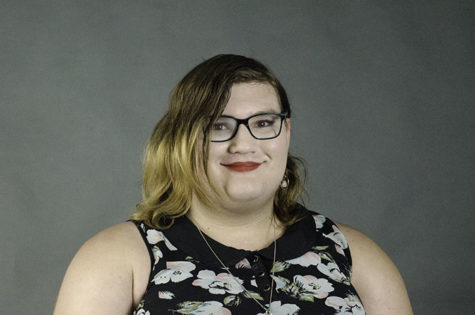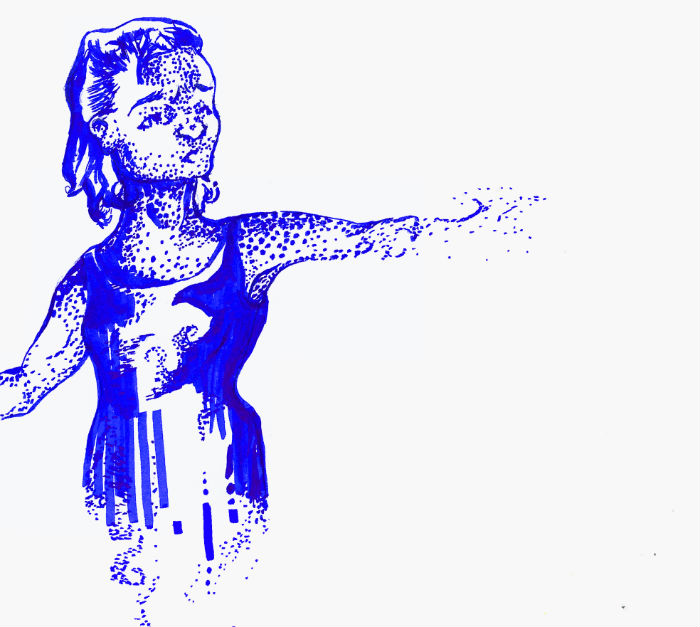Refusing invisibility
I was standing in line at Kohl’s the other day and something odd struck me: I don’t get misgendered by strangers anymore. I don’t even get the walking-freakshow stares or the what-are-you-supposed-to-be stares. Strangers just get it now. They see me as a woman and treat me as such.
I used to be frighteningly aware of my physical presence and appearance, and it absolutely crippled my ability to function outside of my house. I’ve come a long way. And while I love that I don’t have to deal with so much cis nonesense, there’s this big part of me that isn’t rejoicing.
Queer identities are based on struggle, and our open existence is a radical act of resistance against a society that has done nothing but ill for us. So my invisibleness feels like a denial of who I am, of what my people have accomplished.
I absolutely love being trans. I love being the biggest lesbian you’ll ever meet. If I’m being honest, it’s probably my best personality trait. But it’s scary to know that my existence is reason enough to be murdered, and if not murdered, killed by a society choking the life out of me and my community, ignoring our garbled cries for help.
And I understand that even as a queer person, I have a large amount of privilege. According to GLAAD as of 9 Nov. 2016, there were 27 trans people murdered last year, not including closeted people or those misgendered in police reports or by family. Of that 27, 22 were trans women of color, most of whom were black. Over here, I’m so white that I’m literally—this is not a joke—related to the dude who created the Wonder Bread logo. So even though it’s a possibility, I am not the recipient of trans-related violence
But we face many more problems than just murder; finding a job was particularly difficult, especially when I was much less stealth than I am now and before I had my name changed. There was a moment in a few interviews where I could feel their eyes piercing through my clothing, trying to figure out what I was.
So it feels like there’s a compromise: conform to a society of binaries and have any aspect that isn’t normal beaten out of you in order to get work, safety and stability, or exist as an objection to values that are foundational to Western society but live in strife and likely poverty.
The abstraction of these thoughts was defeated by the mundane reality of the physical space I was in. It became too odd to think about it with early 2000’s pop lilting out of the PA and lighting even a hospital would scoff at. Yet there I was feeling as if I had “graduated” out of my transness.
There must be something about long lines at stores because, within the week, another related thought hit me, albeit at a different store. The old man in front of me at Aldi referred to me as “this beautiful young lady.” I’m not really sure cis women realize it because this sort of thing has happened their whole life, but that is beyond gross.
I understand that worse things happen. I didn’t get catcalled, nor was I assaulted, but these casual “compliments” contributes to a culture that normalizes misogyny.
It felt as if he believed himself entitled to me, or at the least my attention and gratitude. He didn’t care how I looked because that wasn’t the point. If he liked my dress, he would have said so. If he liked my makeup, he would have said so.
Honestly, it would be really lovely to hear that sort of stuff. But he didn’t care about them. He cared about a woman being forced to interact with him lest she look ungrateful and dare to hurt his pride.
This was the first time that something like this had ever really happened to me for the same reason strangers don’t have to look at me from a few dozen angles to figure out what to call me anymore. And while I feel hypervisible and on display for everyone to look at and judge by merit of my womanhood, increasingly it seems that my transness is invisible.
This major part of who I am feels like it’s just gone, which would make me from a year ago overjoyed. But now, that isn’t what I want at all. Embracing my transness goes against the binary trans narrative that I was subconsciously so drawn to early on. It used to be “I want to be a girl” but now it’s “I’m whatever I feel like.”
I really love where I’m at and how I present myself, but I don’t like that there happens to be that arbitrary box occupying the same space. It almost feels as if in appearing so binary, I do a disservice to the cause of redefining society’s understanding of what gender really is and the relative commonplace of being trans.
But just because I feel it, doesn’t mean it’s true. The stranger on the street won’t necessarily be able to tell if I’m trans, but my visibility to them doesn’t matter. They probably wouldn’t even notice me anyway. It’s hard to change the mind of someone you’ve never talked to.
There are other ways I can connect to my identity and help defeat the binary than through personal struggle and uncomfortable situations. The fact that I exist openly is a major one. Being trans isn’t something I try to put past me, something I feel ashamed of. It’s something I talk and joke about—something I celebrate.
We all have platforms we can speak from, even if your audience is just one person. And that’s how I ensure that I don’t aid the systems that make being trans so difficult. Through interpersonal connection, through writing, through whatever means, we can exist how we want, without compromising our safety and putting ourselves in awful situations. We can exist how we want, working for the cause one person at a time.


